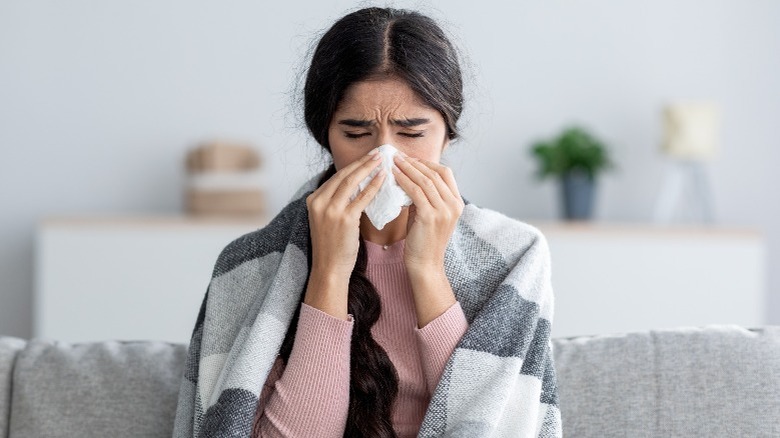Everything We Know About Justice Clarence Thomas' Hospitalization
Supreme Court Justice Clarence Thomas was hospitalized in Washington D.C. late last week after "experiencing flu-like symptoms." The court's public information office released the news two days after Justice Thomas was admitted to Sibley Memorial Hospital. A spokesperson for the Supreme Court confirmed that the 73-year-old justice's infection was not COVID-related (via CNN). "He underwent tests, was diagnosed with an infection, and is being treated with intravenous antibiotics," the court's press release said. The statement went on to say that Justice Thomas' symptoms were abating and that he expected to be released from the hospital within a few days.
The court provided no information of the nature or seriousness of the infection, only adding that the Justice was receiving antibiotics and that he would be released within a few days. Justice Thomas and the other eight justices are all fully vaccinated and boosted.
Nominated in 1991 by then-President George W. Bush, Justice Thomas, a member of the court's conservative wing, is currently the longest-serving justice on the supreme court, according to CBS News.
What else can be the cause of flu-like symptoms?
Flu-like symptoms can indicate a wide variety of possible conditions that can range from mild illness to more serious issues. According to WebMD, flu-like symptoms that may or may not be signs of the flu include fever, sore throat, body aches, tiredness, and vomiting.
One or more of these symptoms could mean that you have a common cold. While figuring out what you have can be confusing, there are some ways to determine if you have the flu or something else. For instance, common colds typically arise more slowly than the flu, and you may have more mild discomforts like a stuffy nose (via WebMD). Flu-like symptoms can also be a sign of pneumonia, Lyme disease, encephalitis, meningitis, among others. It is important to note, however, that these conditions typically also come with other symptoms beyond those similar to the flu.
While the flu can often be treated at home, you should see a doctor if your fever doesn't break or you experience shortness of breath, dizziness, severe vomiting, dehydration, and chest or stomach pain. This is especially true if you already have a weakened immune system (via Everyday Health).


